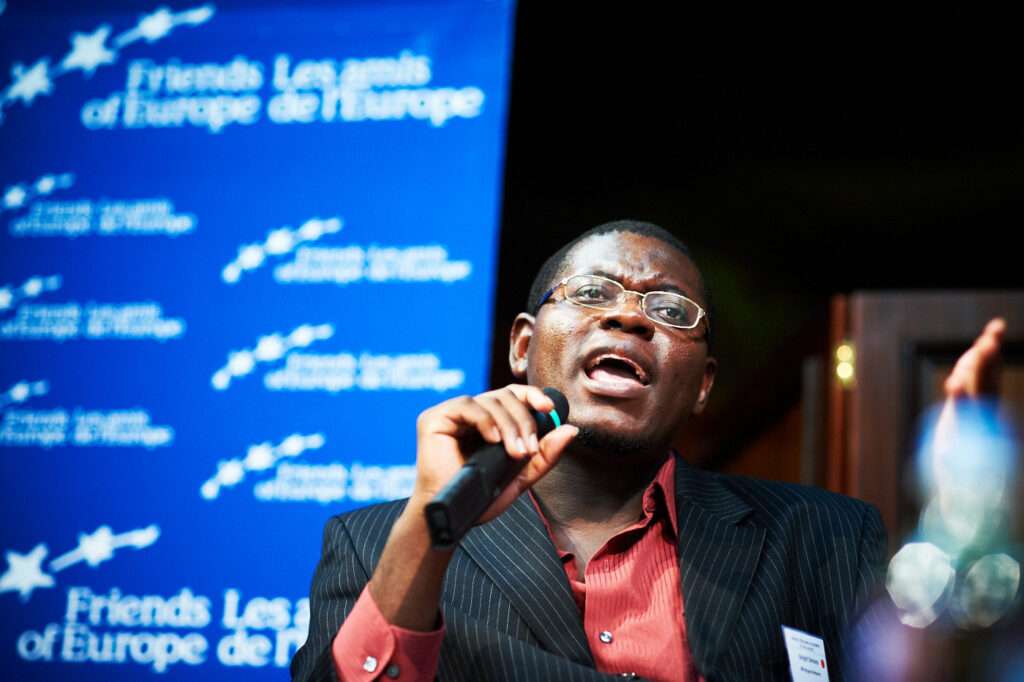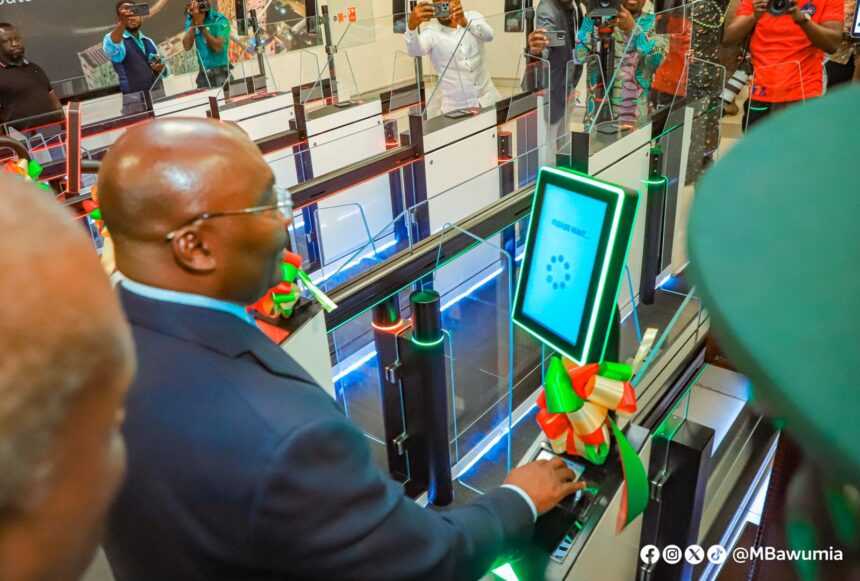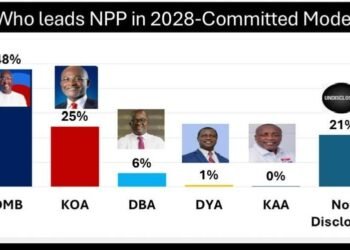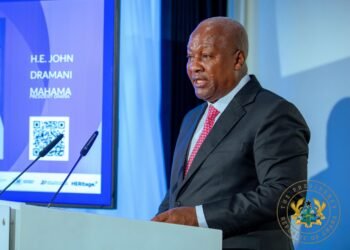Bright Simons, Honorary Vice President of IMANI Africa, has criticized the Ghana Immigration Service’s statement defending the Vice President’s e-gate project, describing it as a classic example of “state enchantment.”
According to Simons, the government employs grand spectacles that appear impressive on the surface but fail to hold up under scrutiny.
He urged the public not to be misled by the display, emphasizing the need for deeper probing.
Simons highlighted that Ghana already has an existing electronic system for immigration management, questioning the necessity and transparency of the new e-gate initiative.
“That system works just fine. That is exactly the system being used to screen the millions of passengers coming and going. If you’ve used Kotoka Airport before, you’ve seen it in action, taking your photo and scanning your fingers.
“There are pending offers from development partners to upgrade and deploy additional modules for this pre-existing system at ZERO engineering cost. The ancillary hardware costs shouldn’t exceed $2.5 million if we believe we need to add e-gates to all borders and centralize e-visa functionality, which right now different Ghanaian embassies have deployed separately at their cost”.
Bright Simons
Simons further revealed that the components being touted by the Ghana Immigration Service were already accounted for in a $16 million World Bank-funded project.
He noted that an additional $2.9 million was allocated to ensure the integration of Terminal 3 into the system.
Simons argued that a physical e-gate (a biometric access point) should not cost more than $10,000 per unit if procured competitively.

He emphasized that it is the software and the integrated immigration management system that drive up costs, transforming the project into a multi-million-dollar venture. “So, it is disingenuous to make it look like the e-gate can ever be a standalone system, otherwise, how is it going to clear people to enter Ghana?”
Simons emphasized that the claim about the government intending to spend $240 million on e-gates is accurate.
He explained that the integrated system, which forms the core of the e-immigration module, was already included in the World Bank’s e-Transform project.
According to him, nearly $20 million was allocated for its rollout, covering both system integration and implementation.
Simons Alleges Sabotage of E-Immigration Project
Furthermore, Bright Simons alleged that the World Bank-funded e-immigration project was deliberately sabotaged following interference from the Vice President’s office.
This, he claimed, was done to create an opportunity for Margins, the same company benefiting from the ID card service monopoly, to take over the project.
Simons argued that these schemes are designed to bypass competitive tendering, enabling massive cost inflation.

He noted that the process is often justified by claiming that the contractor is “pre-financing” the project and will recover their investment through public charges.
“That is the same model that this government heavily criticized in the Sibton mobile interoperability project and TERMINATED. Whatever the situation, a country with Ghana’s level of GDP SHOULD NOT be spending $240m ($270m when all other costs are considered) on e-immigration when it already has a functional system that can be upgraded and automated gates added for a few million dollars.
“The Immigration Service failed to add that it is also spending another ~$30 million on passenger data transmission, which was also part of the World Bank-funded project that was sabotaged to pave the way to cook up this deal”.
Bright Simons
He argued that requiring a private investor to spend $300 million on immigration technology and allowing them to recover the cost through service charges would ultimately burden the public.
He indicated that under the current project design, either the Ghana Immigration Service would face financial collapse or passenger charges would have to be increased — a serious concern.
Simon called for an immediate suspension of the project to allow for a comprehensive national debate, a detailed forensic audit, and an independent review to determine whether the country genuinely needs to invest ~$300 million in immigration technology services.
If so, he questioned whether it should be done through a non-transparent single-source procurement process. “And let’s not forget: the World Bank loan secured for this same project would still need to be paid by you, the longsuffering citizens of Ghana!”
Accordingly, he urged the public to stay focused on the core issue. “Don’t fall for State Enchantment!”
READ ALSO: Erdogan Calls For Arms Embargo On Israel























